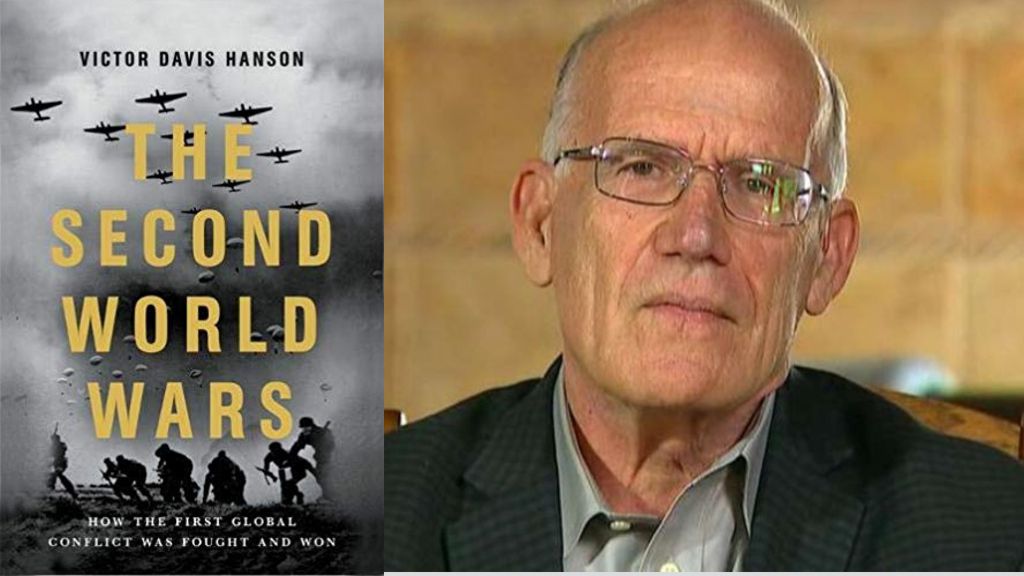World War II was the most lethal conflict in human history. These courses are a definitive look at World War II by America’s preeminent military historian, Victor Davis Hanson.
The Second World Wars with Victor Davis Hanson | Air
World War II, the greatest armed conflict in human history, encompassed global fighting in unprecedented ways. This course analyzes Allied and Axis investments and strategies that led one side to win and the other to lose. It also considers how the war’s diverse theaters, belligerents, and ways of fighting came eventually to define a single war.
This is the second lecture in Hillsdale College’s free online course on World War II featuring military historian Victor Davis Hanson.
The Second World Wars with Victor Davis Hanson | Water
This is the third lecture in Hillsdale College’s free online course on World War II featuring military historian Victor Davis Hanson.
Victor Davis Hanson | The Key to Naval Power in World War II
The Second World Wars with Victor Davis Hanson | Tank Warfare
Victor Davis Hanson | Air Superiority in World War II
Enroll for Free Courses at Hillsdale College
About Victor Davis Hanson
Victor Davis Hanson is a senior fellow in military history at the Hoover Institution at Stanford University and a professor emeritus of classics at California State University, Fresno. He is the author of more than two dozen books, ranging in topics from ancient Greece to modern America, most recently the New York Times bestseller The Case for Trump. He lives in Selma, California.
About Hillsdale College
Hillsdale College is an independent institution of higher learning founded in 1844 by men and women “grateful to God for the inestimable blessings” resulting from civil and religious liberty and “believing that the diffusion of learning is essential to the perpetuity of these blessings.” It pursues the stated object of the founders: “to furnish all persons who wish, irrespective of nation, color, or sex, a literary, scientific, [and] theological education” outstanding among American colleges “and to combine with this such moral and social instruction as will best develop the minds and improve the hearts of its pupils.” As a nonsectarian Christian institution, Hillsdale College maintains “by precept and example” the immemorial teachings and practices of the Christian faith.
The College also considers itself a trustee of our Western philosophical and theological inheritance tracing to Athens and Jerusalem, a heritage finding its clearest expression in the American experiment of self-government under law.
By training the young in the liberal arts, Hillsdale College prepares students to become leaders worthy of that legacy. By encouraging the scholarship of its faculty, it contributes to the preservation of that legacy for future generations. By publicly defending that legacy, it enlists the aid of other friends of free civilization and thus secures the conditions of its own survival and independence.






